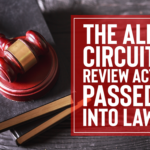Whistleblowers are often torn about reporting their suspicions. This is especially the case with tax fraud. After all, who wants to willingly engage with the IRS? Filing taxes every April can seem like enough of a hassle. But allowing tax cheats to commit fraud is detrimental to all of us, leaving honest taxpayers to pick up the bill. The IRS reports that unreported income alone costs the government hundreds of billions of dollars in lost taxes each year. That money will continue to come out of our pockets if whistleblowers don’t find the courage to speak up.
If you suspect that an individual or company is failing to comply with the tax laws, the first step is to gather all of your information. The IRS will not investigate tax fraud on mere hunch or suspicion. They require evidence and specific details of wrongdoing. An experienced tax fraud lawyer will help you present your evidence in the best way possible.
The Forms
Once you have your evidence together, the two resources you need to know about are IRS Forms 3949-A and 211.
- Form 3949-A, known as an Information Referral, is used to report information to the IRS on issues such as:
- Improper exemptions or deductions
- Falsified tax documents
- Failure to pay taxes
- Unreported income
- Failures to withhold
In lieu of this form, you can write a letter to the IRS detailing the facts of the violation you are alleging.
- Form 211, the Application for Award for Original Information, is used to claim a reward under the IRS’s whistleblower program. On this form, you will provide your unique information of wrongdoing; if this information ultimately leads to the IRS collecting unpaid taxes that are owed, you will be eligible for a whistleblower award.
These forms are used for reporting all varieties of tax improprieties, including tax evasion, improper tax shelters and underpayments of taxes.
The Process
Collecting the necessary evidence and preparing a submission to the IRS can be a complicated process, and improperly presented evidence can be the death knell of an otherwise valid claim. Therefore, it’s crucial to enlist the help of a professional who can explain the process and help guide you through it.
The prospect of whistleblowing is often a scary one. Thankfully, there are Whistleblower Program Rules in place that set out the process for submitting an allegation and receiving an award. The IRS Whistleblower Office offers a reward program for individuals who are brave enough to step forward with information of tax improprieties. In some cases, these rewards are mandatory and can total up to 30% of any tax, penalty, and other amounts for which the violator is found liable.
Once a submission is complete, the IRS will evaluate it for potential investigation and decide whether to proceed with an action to recover. The process may take several years. In that time, the IRS will take steps to protect the whistleblower’s confidentiality. Your attorney can work with the IRS to address any issues with the submission and provide information to assist the investigation. Having help with the submission and investigation is the best route to most expediently obtaining a successful recovery.
Your tax attorney will also advise you of any additional considerations that may impact your decision to become a whistleblower. Any issues with your own taxes or any other concerns that you may have should be disclosed to your attorney up front. Your attorney’s job is to address your concerns and answer your questions in order to help you decide whether whistleblowing is the right course of action to take.
If you suspect someone of tax improprieties, the first step is to protect your interests and rights as a potential whistleblower. At Kreindler and Associates, we have over 15 years’ experience assisting courageous individuals in bringing tax fraud to light. If you have evidence of tax fraud or questions regarding how to report tax fraud, contact us today.




